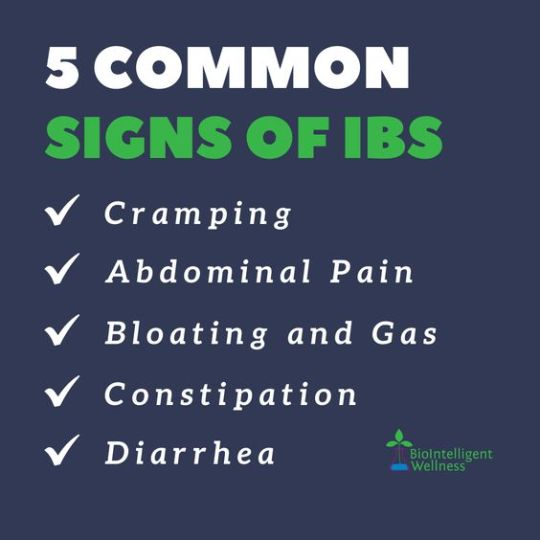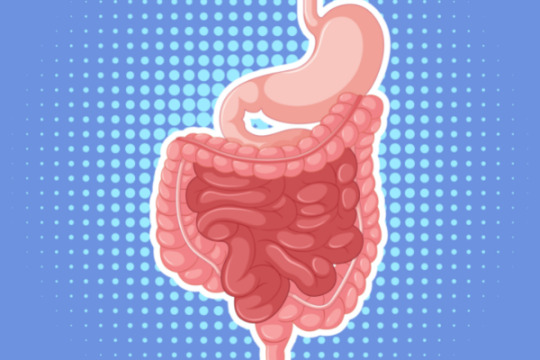#irritablebowelsyndrome
Explore tagged Tumblr posts
Text

Today is #WorldIBSDay I wish when I was diagnosed with #IrritableBowelSyndrome the gastroenterologist had been on the look out for #MyalgicEncephalomyelitis which I had all the symptoms of at that time & is often comorbid. It would likely have helped prevent my health deteriorating #MEcfs #CFS
12 notes
·
View notes
Text

🚨 Struggling with bloating, gas, or frequent diarrhea? You might have Irritable Bowel Syndrome (IBS)!
Around 5-10% of the world’s population suffers from IBS, yet many go undiagnosed. If you're experiencing abdominal pain, mucus in stool, or irregular bowel movements, it's time to consult a gastroenterologist! . . . Schedule a consultation: Dr. Hitendra K Garg
📲 8920361841, 8920632657 📲 Follow us: @drhitendragarg Visit: www.drhitendrakgarg.com . . .
#IBSAwareness#IrritableBowelSyndrome#GutHealthMatters#DigestiveHealth#Gastroenterology#BloatingRelief#IBSSupport#HealthyGut#TummyTroubles#GastroCare#StomachHealth#IBSRelief#AbdominalPain#BowelHealth#DrHitendraGarg
1 note
·
View note
Text
#صحة#القولون_العصبي#متلازمة_القولون_العصبي#أمراض_الجهاز_الهضمي#صحة_الجهاز_الهضمي#القولون#التهاب_القولون#أعراض_القولون_العصبي#علاج_القولون_العصبي#تغذية_صحية#نصائح_صحية#طب#مشا��ل_الهضم#راحة_الجهاز_الهضمي#القلق_والقولون#biophilia nutrition#health#health and wellness#mental health#نمط_حياة_صحي#Health#IBS#IrritableBowelSyndrome#GutHealth#DigestiveHealth#IBSSymptoms#IBSTreatment#IBSDiet#IBSRelief#GutMicrobiome
0 notes
Text
0 notes
Text
#IBS#IrritableBowelSyndrome#GutHealth#IBSAwareness#DigestiveHealth#IBSRelief#IBSDiet#ChronicIllness#GutHealing#IBSStrong#Bloating#IBSFlareUp#HealthyGut#IBSCommunity#IBSWarrior
0 notes
Text
Great documentary from Deutche Welle on the importance of your gut to your overall health and wellbeing with interviews from prominent IBD and IBS specialists. Worth a watch if you can find the time!
youtube
#InflammatoryBowelDisease#IrritableBowelSyndrome#crohn's disease#ulcerative colitis#antiinflammatory#chronicillness#wellnessjourney#healthygut#healthymindhealthylife#Youtube
1 note
·
View note
Text
Call for Registration!! Don't pass up this chance to learn more and connect with leading figures in the field of Gastroenterology at the 14th World Gastroenterology, IBD & Hepatology Conference, from December 17-19, 2024 in Dubai, UAE & Virtual. Register here: https://gastroenterology.utilitarianconferences.com/registration

#InflammatoryBowelDisease#IBSTreatment#IrritableBowelSyndrome#LiverTreatment#PancreasHealth#GIExperts#Gastr
0 notes
Video
youtube
Irritable Bowel Syndrome Telugu | IBS - రకాలు, కారణాలు, లక్షణాలు, రోగ నిర్ధారణ & చికిత్సలు
IBS అనేది పెద్ద ప్రేగు (పెద్దప్రేగు)ని ప్రభావితం చేసే దీర్ఘకాలిక పరిస్థితి. ఇది కడుపు నొప్పి, ఉబ్బరం మరియు ప్రేగు అలవాట్లలో మార్పులకు కారణమవుతుంది.
Team of Top Gastroenterologists in Hyderabad
Known more about : Dr. Mysore Sudhir | Senior Consultant Gastroenterologist and Hepatologist at PACE Hospitals, Hyderabad
#Irritablebowelsyndrometelugu#IBS#IrritableBowelSyndrome#TypesofIrritablebowelsyndromeinTelugu#CausesofirritablebowelsyndromeinTelugu#DiagnosisofIrritablebowelsyndromeinTelugu#gastroenterology#pacehospitals#hyderabad#india
0 notes
Text
Irritable Bowel Syndrome (IBS): Understanding the Signs and Symptoms

What is Irritable Bowel Syndrome (IBS)?
Irritable bowel syndrome (IBS) is a common, chronic condition that affects the gastrointestinal system (GI). Although it does not cause visible harm to the GI tract, it affects the patient’s quality of life and their choice of food. IBS is characterized by various symptoms that differ in severity and frequency.
The exact mechanism that leads to irritable bowel syndrome is not yet well understood; however, several risk factors may affect the gastrointestinal tract, such as:
Genetic factors
Age
Early-life stress
Severe infections
Changes in gut microbes
Motility issues.
Symptoms of IBS
The symptoms of IBS usually persist for a long time. IBS patients suffer from mild, moderate, or severe symptoms. Additionally, IBS symptoms may be similar to other gastrointestinal conditions, making its diagnosis challenging for healthcare providers. Here are some symptoms of IBS :
Lower abdominal cramps or pain: This is the most common symptom of IBS and it is targeted by food and relieved after passing stool. It can also vary in severity of pain.
Abdominal bloating and gases: Frequent complaints in IBS.
Changes in bowel habits: Diarrhea (IBS-D), constipation (IBS-C), or a combination of both.
Nausea: Especially after eating.
Sensation of incomplete evacuation.
Presence of mucus in stool.
Bowel incontinence: Inability to control bowel movements
Fatigue and sleeping difficulties.
Triggers of IBS symptoms
Food
Certain foods can trigger the symptoms of irritable bowel syndrome, such as processed foods (e.g. processed meat, cookies), chocolate, fatty meals, caffeinated drinks (e.g. coffee, tea, carbonated drinks), refined grains in bread and cereals, and dairy products (e.g. cheese).
Stress
Stress and anxiety can exacerbate IBS symptoms. There’s a link between the brain and the gut, and psychological risk factors can affect IBS symptoms, therefore, stress management is essential to control IBS. Methods like meditation, mindfulness, and breathing techniques can be beneficial.
Medications
Some medications trigger IBS symptoms, such as some antibiotics and antidepressants. IBS patients need to consult their healthcare professional before taking any medication.
The Menstrual Cycle in Females
Female hormonal changes every month can also worsen the symptoms of IBS, such as bloating and pain.
Other Triggers
Other triggers include eating too fast, chewing gum, and obesity. Eating too quickly can increase bloating and gas due to air swallowing. Chewing gum can stimulate unneeded digestive enzymes. Obesity can also worsen IBS symptoms by increasing pressure on the intestines and affecting the body’s hormones by the excess presence of fat.
Management of IBS
Management of irritable bowel syndrome does not rely on a single therapeutic approach; however, lifestyle, dietary, and physiological modifications should be considered in all IBS patients. Pharmacological interventions may also be needed in some cases.
A low FODMAP diet may be recommended to relieve symptoms of IBS. It is a temporary diet that limits the intake of certain types of carbohydrates that are hard to digest . Additionally, adequate hydration and regular exercise are important.
Doctors may prescribe supportive medications to some IBS patients, such as laxatives for constipation, anti-diarrheal drugs, or antispasmodic drugs.
Urgent Physician Appointment
An urgent doctor appointment is needed in the following cases, particularly if the patient has a family history of colon or ovarian cancer:
Persistent change in bowel habits for 6 weeks or longer, especially in the elderly.
Sudden and unexplained weight loss.
Unexplained persistent vomiting.
Bloody diarrhea.
Abdominal lump or swelling.
Palpitation or shortness of breath.
Read More: https://insightscare.com/irritable-bowel-syndrome-ibs-understanding-the-signs-and-symptoms/
#BestOnlineHealthcareMagazine#onlinehealthcaremagazine#globalhealthcaremagazine#IrritableBowelSyndrome
0 notes
Text

Psyllium husk can also provide relief for individuals suffering from irritable bowel syndrome, haemorrhoids, and piles. By retaining and absorbing water, psyllium husk helps soften stools, making them easier to pass and alleviating discomfort associated with these conditions. In conclusion, incorporating psyllium husk into your daily routine can have a positive impact on your digestive health and overall well-being. For more details and to buy online visit;
https://laxmisatisabgol.com/product/online-sat-isabgol-buy-best-psyllium-husk-200g/
0 notes
Text
youtube
🌐 SynoGut Official Website: https://hotm.art/synogut_official_site 🌐 SynoGut Official Website: https://hotm.art/synogut_officialsite
#synogut#health#synogutsideeffects#realsynogutreviews#
✅How SynoGut Works? Discover the transformative power of SynoGut's natural blend. Each ingredient is meticulously selected to restore balance and enhance nutrient absorption. From psyllium husk to bentonite clay, SynoGut aids in detoxification, ensuring a healthier gut. Experience the difference with SynoGut's reliable formula, designed for your well-being.
✅ Benefits: Unlock a plethora of advantages with SynoGut. Attain digestive equilibrium, enhanced nutrient assimilation, and consistent bowel regularity. Experience the purifying impact, diminishing inflammation and fostering gut wellness. Embrace a lifestyle of vigor, vitality, and self-assurance with SynoGut as your ally.
✅ Ingredients: ⛔ Psyllium, Bentonite Clay, Black Walnut, Oat, Flaxseed,Prune, Aloe Vera,L. Acidophilus,Apple Pectin,Glucomannan.
✅How to Use Synogut? The recommended dosage is 2 capsules of Synogut daily, taken with a large glass of water for optimal absorption.
💰 Risk-Free Guarantee: Synogut offers a 60-day money-back guarantee for customer satisfaction.
🌐 SynoGut Official Website: https://hotm.art/synogut_official_site 🌐 SynoGut Official Website: https://hotm.art/synogut_officialsite
SYNOGUT - SYNOGUT REVIEWS 😭❌👉 (CAUTION) ❌⚠️ DOES SYNOGUT WORK? 😱" SYNOGUT REVIEW
Tags: synogut side effects,synogut ingredients,synogut,synogut reviews,synogut review,synogut supplement review,synogut real reviews,synogut real review,synogut supplement,youtube,synogut pills,probiotics,digestion,hashtag,bloating,weightloss,irritablebowelsyndrome,ibsdiet,leakygut,synogut fda,synogut au,synogut customer reviews,probiotics,synogut discount,synogut reviews youtube,synogut reviews reddit,synogut review 2024.,synogut customer review
SYNOGUT - SYNOGUT REVIEWS 😭❌👉 (CAUTION) ❌⚠️ DOES SYNOGUT WORK? 😱" SYNOGUT REVIEW
🌐 SynoGut Official Website: https://hotm.art/synogut_official_site 🌐 SynoGut Official Website: https://hotm.art/synogut_officialsite
#synogut#synogut side effects#synogut ingredients#synogut reviews#synogut customer review#synogutus#synogut us#synogut supplements#irritablebowelsyndrome#probiotics#gut health#natural ingredients#easy to use#natural supplement#digestion#bloating#weight loss#digestive system#healthy stomach#Youtube
1 note
·
View note
Text

Women’s Optimum Nutrition: Unlock Peak Wellness
Women’s Optimum Nutrition refers to the specific nutritional needs of women to support their overall health and well-being. It focuses on providing women with the essential vitamins, minerals, and other nutrients that are crucial for their health at different stages of life. Understanding and meeting these nutritional requirements is key to unlocking peak wellness in women’s lives. Read More...
#womensnutrition#womenshealth#womensfitness#nutrition#womenswellness#womenover#healthylifestyle#guthealth#perimenopause#menopause#irritablebowelsyndrome#hormonehealth#nutritionist#fodmaps#nutritionfacts#healthateverysize#dietitian#something#health#intuitiveeating#ibsfriendly#womenssupplements#hormonebalance#proteinpowder#bodyacceptance#bodyrespect#nutritionforwomen#thewellnessshoppingclub#costperformance#womenshealthandwellness
1 note
·
View note
Text
Eating well and maintaining good health are key to starting the new year on the right foot.
In today's fast-paced world, it's easy to get caught up in the hustle and bustle of everyday life. We often prioritize work, family, and social obligations over our own health. However, it's important to remember that our health is our most valuable asset, and we should prioritize it accordingly. One aspect of our health that is often overlooked is our digestive system. Our digestive system plays a crucial role in our overall health, as it is responsible for breaking down food and absorbing nutrients. When our digestive system is not functioning properly, it can lead to a host of health problems, including gastrointestinal disorders, such as irritable bowel syndrome (IBS), Crohn's disease, and ulcerative colitis.
If you are experiencing digestive issues, it's important to seek help from a qualified gastroenterologist. A gastroenterologist is a medical doctor who specializes in the diagnosis and treatment of disorders of the digestive system. They are trained to perform a variety of diagnostic tests, such as endoscopy and colonoscopy, to help determine the cause of your symptoms. They can also prescribe medication, recommend dietary changes, and provide lifestyle advice to help manage your condition.

One of the Best gastroenterologist in Mumbai is Dr. Harshad Joshi. Dr. Joshi is a highly skilled and experienced gastroenterologist who is dedicated to providing his patients with the highest quality care. He has a wealth of experience in diagnosing and treating a wide range of gastrointestinal disorders, and he is committed to staying up-to-date on the latest advancements in the field. Dr. Joshi takes a holistic approach to patient care, and he believes in treating the whole person, not just the symptoms of their condition.
Dr. Joshi is passionate about helping his patients achieve optimal digestive health, and he takes the time to listen to their concerns and develop personalized treatment plans. He is known for his compassionate and caring bedside manner, and he strives to make his patients feel comfortable and at ease during their appointments. Dr. Joshi is also a strong advocate for preventive care, and he encourages his patients to take an active role in their own health by making healthy lifestyle choices.
If you need the Best gastroenterologist in Mumbai, Dr. Harshad Joshi is the best choice. With his expertise, experience, and compassionate care, he can help you achieve optimal digestive health and improve your overall well-being. Don't let digestive issues hold you back from living your best life – schedule an appointment with Dr. Joshi today and take the first step towards better health.
#DrHarshadJoshi#GastroenterologistMumbai#DigestiveHealth#GastrointestinalDisorders#IrritableBowelSyndrome#CrohnsDisease#UlcerativeColitis#Endoscopy#Colonoscopy#PreventiveCare#HealthyLifestyle#Wellness#NewYear#GoodHealth#GoodFood
1 note
·
View note
Text
0 notes
Text
0 notes
Text
Foods To Eat With Irritable Bowel Syndrome: A Comprehensive Guide to Managing IBS Through Diet

The best foods to eat with irritable bowel syndrome (IBS) include bananas, blueberries, carrots, and other low FODMAP fruits and vegetables. Lean proteins like eggs, chicken, and fish are also usually well-tolerated. People with IBS should limit common triggers like gluten, dairy, caffeine, and high-fiber foods.
Best Foods to Eat with Irritable Bowel Syndrome
While specific food sensitivities vary (what may be suitable for one person, may cause problems for another), the following nutritious foods tend to be well-tolerated with IBS: Low FODMAP Fruits and Vegetables Fruits and veggies are part of a healthy diet, but some high FODMAP options can trigger IBS issues. The best fruits and vegetables for IBS are generally low in FODMAPs. Great choices include bananas, blueberries, oranges, raspberries, strawberries, carrots, eggplant, green beans, lettuce, potatoes, tomatoes, and zucchini. See the paragraph below for an explanation of the term FODMAP*. Gluten-Free Whole Grains Many people with IBS are sensitive to gluten, a protein found in wheat, barley, and rye, therefore a gluten-free diet should be considered in conjunction with low-FODMAP foods. Choosing gluten-free whole grains like brown rice, quinoa, oats, and millet may prevent gastrointestinal issues. Lean Protein Getting enough protein promotes good digestive health. Great lean protein options to help manage IBS include eggs, skinless chicken or turkey, wild fish (salmon, tuna), tofu, and tempeh. Nuts, Seeds, and Healthy Fats Nuts, seeds, and healthy fats like olive oil, and those contained in avocado, and coconut, provide nutrients and are gut-friendly. The best choices for IBS sufferers are almonds, pumpkin seeds, sunflower seeds, and pine nuts. Limit servings to 1⁄4 cup due to the high fiber content. Be sure to take in sufficient liquids if you are changing to a high-fiber diet or increasing fiber in your diet. Insufficient liquid intake can result in constipation.
YouTube Video: What Can I Eat If I Have IBS?
What is Irritable Bowel Syndrome (IBS)?
IBS is a common digestive disorder, affecting 10-15% of people. It is characterized by symptoms like cramping, bloating, constipation, and diarrhea that come and go over time. IBS occurs because of increased sensitivity and muscle issues in the digestive tract. There is no cure, but diet changes can help.
What Is A Low FODMAP Diet?

A low FODMAP diet is a nutritional approach focused on reducing certain types of carbohydrates that can trigger digestive issues in some people. FODMAP stands for “Fermentable Oligosaccharides, Disaccharides, Monosaccharides, and Polyols, such as sorbitol, mannitol, xylitol, and maltitol, which are sugar alcohols.” (don't get distracted by the technical terminology, all you need do is keep a note of the good and bad foods). These FODMAP molecules are poorly absorbed sugars that end up fermenting in the gut, contributing to symptoms like gas, bloating, cramping, diarrhea, and other discomforts. Foods high in these short-chain carbohydrates include wheat products, various fruits and vegetables, dairy foods, and certain sweeteners and additives. The low FODMAP diet entails significantly reducing high FODMAP foods for 4-8 weeks to provide relief of IBS symptoms, then systematically reintroducing them to tolerance to determine your food triggers. Following the three phases of elimination, reintroduction, and customization long-term has been shown in studies to greatly reduce troublesome digestive symptoms in over 70% of IBS patients. By following this regime, you will find out which foods to eat with irritable bowel syndrome. NB: Consulting with a knowledgeable dietitian when undertaking the low FODMAP diet is strongly recommended.
Why Adopting A Special Diet for IBS Matters
Foods play a big role in IBS symptoms. Many foods contain FODMAPs (short-chain carbohydrates) which can trigger gut issues. Following a low FODMAP diet can significantly relieve IBS symptoms.
Navigating Elimination and Reintroduction on the Low FODMAP Diet
Learning which foods to eat with irritable bowel syndrome takes trial and error over some time. The low FODMAP diet involves first strictly eliminating foods high in IBS triggers for 4-8 weeks. This elimination phase aims to calm inflammation and symptoms so you start with a baseline. Then the reintroduction phase systematically reintroduces groups high in FODMAP one at a time every 3 days. Keeping a food and symptom journal is key to pinpointing what specific foods your body can tolerate. Starting with groups high in one type of FODMAP compound allows you to isolate your triggers. For example, testing gluten-containing foods tests your sensitivity to wheat. Methodically challenging your body this way provides clarity on what foods you can enjoy long-term versus. what foods to keep eliminating. This personalized approach tailors your food choices for managing IBS based on your unique intolerances. The elimination and reintroduction phases take diligence under the guidance of a knowledgeable dietitian, but enable the customization needed to significantly decrease irritating IBS symptoms.
Foods to Avoid or Limit with IBS

Some foods that trigger symptoms: ✖️ High-FODMAP produce like apples, cauliflower ✖️ Gluten: wheat, barley, rye ✖️ Dairy ✖️ Beans/lentils ✖️ Caffeine, alcohol ✖️ Sweeteners like xylitol, maltitol ✖️ High-fiber foods ✖️ Fried/fatty foods ✖️ Sugary foods
Tips for Managing IBS
Making dietary changes takes time. Helpful tips include: ✔️ Work with a dietitian ✔️ Keep a food journal ✔️ Gradually eliminate triggers ✔️ Read labels for problem ingredients ✔️ Drink plenty of fluids ✔️ Manage stress ✔️ Take probiotics
Hidden Sugars

People with IBS need to be aware of hidden sugars that can sneak into certain foods and trigger IBS symptoms. The culprits are processed foods, prepackaged meals, condiments, and sweets that contain sugar alcohols like sorbitol, mannitol, xylitol, or maltitol as sweeteners. Even foods labeled as “sugar-free” often contain these polyols. Furthermore, those with lactose intolerance should watch for disaccharides like lactose hiding in many dairy-containing foods if they are not specifically labeled as "lactose-free". It's important to know that whole milk naturally contains a lot of sugar, too. Reading nutrition labels closely and knowing the many names for sugars is essential when adopting the IBS diet. Being careful to limit the consumption of artificial sweeteners, lactose, and other types of FODMAPs, found in abundance in processed foods, can help manage irritable bowel syndrome. Learn more about the various sugars mentioned at Wikipedia. Remember, working with a dietitian ensures you will get a clearer picture of the foods to eat with irritable bowel syndrome and know how to spot hidden culprits that can sneak up and cause discomfort.
In Summary
Managing irritable bowel syndrome requires paying close attention to your diet. The best approach is to focus on nutritious, gut-friendly foods that are typically well-tolerated while limiting common triggers like FODMAPs, gluten, dairy, and high-fiber foods. Making dietary changes alongside lifestyle adjustments like stress management can greatly relieve uncomfortable IBS symptoms. Though it requires some trial and error based on your intolerances, eating a balanced, trigger-free diet is key to feeling your best while living with IBS. Consult with a healthcare professional for tailored guidance to successfully manage your symptoms long-term through diet and lifestyle choices that work for you. With a little trial and error, you will be able to learn which foods to eat with irritable bowel syndrome. Internal Links Low FODMAP Diet Shopping List Breakfast Food For IBS

© Natural Wellness Solutions Read the full article
0 notes